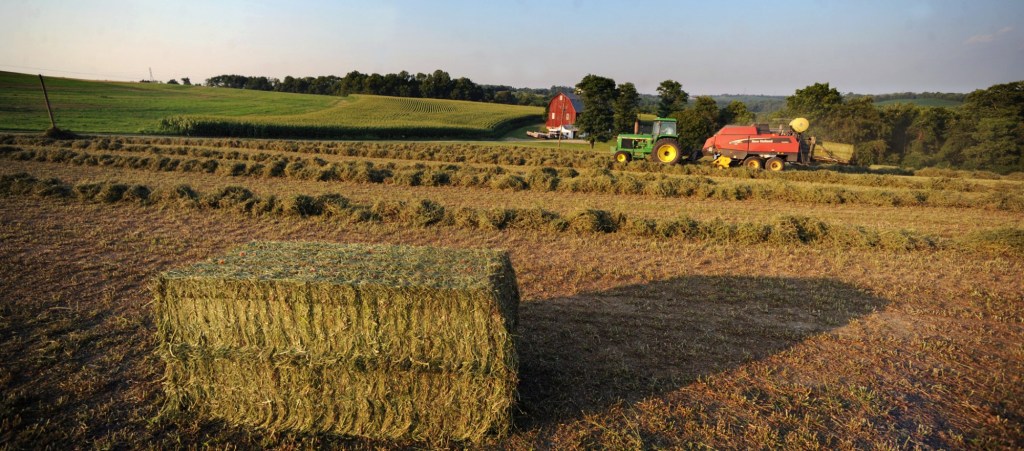The expression “saved from development” always unsettled me. It indicates that the development is something dangerous – something we have to hurry to stop. But is it always a threat? And if not, why do we treat it?
On August 22, 2025, the morning call ran a story entitled “9 more Lehigh Valley Farms, which were saved from development. Find out where.” However, the article never explained why these properties were preserved. This is an important omission. As a real estate agent and professional planner, I support the strategic land acquisition for open space. I served four years in an Open space committee in New Jersey in the district and led it in my last year. One thing that I put into this role was the willingness to ask a difficult but essential question: Why this country?
As cities for the preservation of packages, we assessed whether the country fit into a wider agricultural or open spatial plan, kept environmental advantages or a picturesque or aesthetic value. But if the only reason was that a developer wanted to build something – within the limits of zoning and the master plan – I could not support it.
Therefore, the framework of the morning call gave me a break. The article states that the country was bought to “protect it from future living or commercial developments” and to “maintain arable land to ensure that it is available for future generations for the farm”. That sounds noble – but the substance is missing. What did this package do to be preserved? What public benefits did the acquisition meet?
To be clear: I do not judge an individual purchase. I suggest that the public deserves more clarity about why the country is preserved – and whether it supports a wider vision.
The Lehigh Valley is now exposed to a growing real estate crisis. According to a report by Lehigh Valley's planning commission (“Data tool offers housing construction analyzes for every Valley community”, April 3, 2025), the region is short of 9,000 residential units – a gap that is supposed to exceed 50,000 without intervention.
At the same time, Pennsylvania still has more than 7.1 million actress (US Agriculture Ministry, press release, February 16, 2024). Ackerland is important and protects it, but also houses for working families and rooms for jobs, purchases and relaxation. Balanced growth is important.
The government should not only block the development for reasons. Also, arable land should also not only be kept out of nostalgia. We have to ask better questions: Why this country? Which public goal does this serve? The answers should come from a comprehensive planning – not the fear of changes.
Comprehensive planning is how a community decides how it wants to grow. It deals with infrastructure, streets, living needs, natural resources and much more. It defines where open space preserve, build houses, support shops and attract industry. It is a public, participatory process in which residents, stakeholders and elected officials are involved.
After the adoption, the comprehensive plan leads to zoning. Zoning transforms the vision into the law. It protects public health, security and well -being; reduces land use conflicts; supports economic growth; And helps to preserve the community character. In Pennsylvania, this process is subject to the municipal planning code (Law 247 of 1968). Zonation is the rule book for responsible growth.
The Lehigh Valley is growing. And as with electricity, growth can be transformative if they are well managed. It can operate houses, drive the economy and combine the communities. But not managed, it can be destructive.
That is why thoughtful planning is important. It helps us to decide which country should be preserved – and which country live, support jobs or services. When a newspaper says that land was “saved from development”, I would like to know: Sang this decision with the comprehensive plan? Was it part of a long-term strategy or just a reflex?
The morning call owes the readers more as a feel-good headlines. It should be examined whether the maintenance decisions match the sound planning. At the same time, the municipalities have to support their planners. If plans and zoning adopted growth decisions follow, the planners should not be left alone to defend them alone.
We need farms. We need houses. We need places to work, shop and gather. The balance requires a thoughtful, well -founded planning – no emotional reactions.
Let us stop treating every project stopped as a victory – and start more intelligent questions about the future that we build.
This is a column with contribution to opinions. Matt jump is Associate Broker at Nai Summit and director the jump Planning & Real Estate Consulting Company. He lives in Forks Township, whereHe sits in the planning commission. The views expressed in this piece are those of the individual author and should not be reflected as the views of this publication. Do you have to share a perspective? Learn more about how we deal with the submission of guests at theorningcall.com/opinions.
